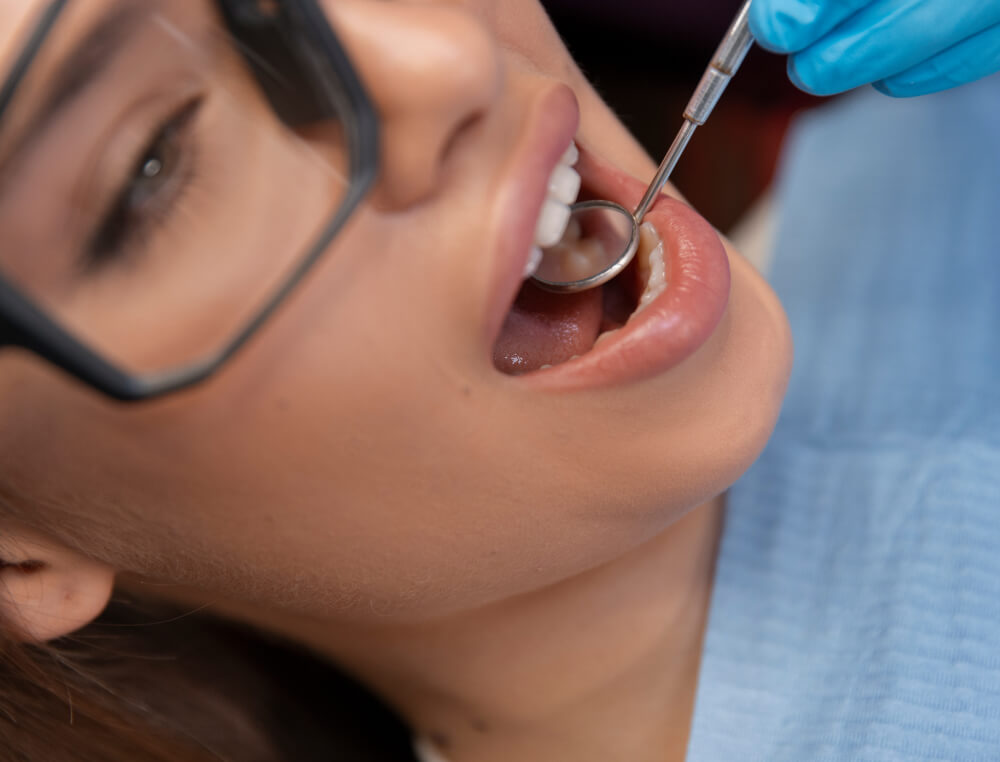When it comes to oral health, fluoride is often treated as a given—something in your toothpaste or tap water that most people never question. But few realize how essential it is in defending your teeth against the slow, silent progression of decay. In a city like Washington, DC, where busy lives and diverse diets collide, understanding fluoride’s long-term role isn’t just smart—it’s strategic for lasting dental wellness across all ages.
What Is Fluoride and How Does It Work?
Fluoride is a naturally occurring mineral, found in soil, water, and even some foods. What makes it so powerful in dentistry is its ability to bind with the surface of your teeth and actually rebuild enamel—a process called remineralization. But here’s what’s less often discussed: fluoride doesn’t just repair damage. It also makes teeth more resistant to future acid attacks from sugars and bacteria. Think of it as upgrading your enamel to a stronger version of itself. Unlike treatments that only react to decay, fluoride works proactively—fortifying teeth at a microscopic level. And for those with dry mouth, gum recession, or acid reflux, this protective layer is even more important, as their enamel is under constant stress. It’s quiet prevention, happening every day—if you give it the chance.
The Real Benefits of Fluoride for Teeth: What the Evidence Shows
Fluoride’s role in preventing cavities is well-known, but its benefits go far beyond the surface. Recent research and clinical practice continue to reveal surprising ways fluoride supports long-term oral health—especially when used consistently and appropriately. Here are key, evidence-backed benefits that many dental patients and even some professionals don’t often consider:
- Strengthens teeth before they erupt: Fluoride can be absorbed into developing teeth in children, helping them form stronger enamel before the teeth even appear in the mouth.
- Helps reverse early decay: Fluoride isn’t just preventative—it can actually reverse the earliest stages of tooth decay by rebuilding weakened areas of enamel before a cavity forms.
- Boosts enamel’s resistance to acidic foods and drinks: For patients who enjoy wine, citrus, or sparkling water, fluoride makes teeth more acid-resistant—reducing enamel wear over time.
- Minimizes hypersensitivity: Regular fluoride exposure helps block microscopic pathways in the enamel that lead to nerve endings, reducing tooth sensitivity without the need for special toothpaste.
- Supports restoration longevity: Dental fillings, crowns, and veneers last longer in fluoride-rich environments, as the natural teeth surrounding them stay stronger and more stable.
- Reduces root surface decay in older adults: As gums naturally recede with age, fluoride becomes essential in protecting exposed root surfaces—which are more vulnerable to decay.
- Improves oral health equity: Studies show communities with access to fluoride—whether through water or dental products—have significantly lower rates of tooth decay, regardless of income or background.
Fluoride works quietly, but its benefits touch every stage of life and nearly every type of patient.
Myths vs. Facts: Is Fluoride Good for Your Teeth?
Despite decades of research, fluoride is still surrounded by confusion. Let’s unpack some of the most common myths—and what the evidence actually says.
Myth: Fluoride Is Only for Kids
Many adults believe fluoride is only necessary during childhood. In reality, adults—especially those with dry mouth, gum recession, or a history of dental work—benefit just as much. Fluoride continues to protect and repair enamel throughout life.
Myth: Fluoride Is a “Chemical Additive” You Should Avoid
It’s easy to associate fluoride with industrial chemicals, but naturally occurring fluoride has always existed in water sources. When used in safe, regulated amounts, it’s not only beneficial but endorsed by major health organizations, including the CDC and WHO.
Myth: You Don’t Need Fluoride if You Brush Well
Good brushing habits help, but they don’t neutralize the microscopic acid attacks from food and bacteria. Fluoride acts like armor—strengthening enamel beyond what brushing alone can achieve.
Fact: Overuse Can Be Harmful—But It’s Rare
Too much fluoride, especially in young children, can lead to dental fluorosis. However, this is extremely rare in communities with regulated fluoride levels and proper use of toothpaste. Responsible fluoride use is both safe and effective.
Fluoride isn’t a miracle cure—but it is a proven, science-backed ally in long-term dental health.
Who Needs Fluoride the Most? Adults, Children, and High-Risk Patients
Fluoride is often emphasized during childhood, but its protective power matters at every age. Adults with dental restorations, gum recession, or dry mouth are more prone to decay and benefit greatly from fluoride treatments. Older adults—especially those on medications that reduce saliva—are at higher risk for root surface decay. Children need fluoride to strengthen developing teeth, but high-risk patients of any age, including those with frequent cavities or poor dietary habits, should consider it essential. Even people undergoing orthodontic treatment can use fluoride to protect areas around brackets and wires where plaque builds up quickly. It’s targeted protection for those who need it most.
Fluoride and Cavity Prevention: Everyday Sources You Might Be Missing
Many people think fluoride only comes from toothpaste or the dentist’s office, but it’s hiding in more places than you might expect. Tap water in most U.S. cities, including Washington, DC, contains regulated levels of fluoride that help protect teeth with every sip. Some mouth rinses and even certain foods processed with fluoridated water can add to your daily exposure. But here’s what’s often overlooked: if you’re drinking only bottled or filtered water, you may be missing out on one of the simplest sources of protection. Talk to your dentist about balancing your fluoride intake to make sure you’re getting consistent, cavity-fighting support—without overdoing it.
When to Consider Professional Fluoride Treatments
Professional fluoride treatments aren’t just for kids—they’re often recommended for adults with specific risk factors. If you’ve had recent dental work, frequent cavities, sensitive teeth, or dry mouth caused by medications, you may benefit from concentrated fluoride applied during your check-up. Unlike over-the-counter products, in-office treatments use higher-strength formulas that bond more effectively to your enamel. These treatments can also protect exposed root surfaces and areas around crowns or bridges that are harder to clean. What’s often overlooked is timing: getting fluoride after a cleaning gives your teeth a fresh surface to absorb it better, boosting its long-term effects between visits.
Conclusion
Fluoride remains one of the most effective tools in preventing tooth decay and protecting enamel across all ages. Understanding its true benefits—and separating fact from myth—empowers you to make informed choices for your oral health. Whether through everyday sources or professional treatments, fluoride plays a key role in maintaining a healthy smile and preventing costly dental problems down the line. If you’re curious about how fluoride can fit into your personalized dental care plan, don’t hesitate to reach out. Visit District Dental Solutions or call us at (202) 955-5787 to schedule an appointment and take the next step toward stronger, healthier teeth.


